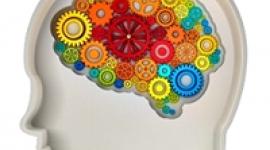Medication Treatments for ADHD - Adderall for ADHD
Adderall for ADHD
 Adderall is made by Richwood Pharmaceuticals, and was previously known as 'Obetral'. The dosage of Adderall is roughly equivalent to a comparable dose of Dexedrine.
Adderall is made by Richwood Pharmaceuticals, and was previously known as 'Obetral'. The dosage of Adderall is roughly equivalent to a comparable dose of Dexedrine.
Adderall tablets consist of equal amounts of Amphetamine and Dextroamphetamine, with both short and long-acting preparations. The therapeutic effect is apparently more subtle and smooth than other preparations and the length of action is 6-9 hours.
Important points to note when prescribing or taking Adderall:
- It provides therapeutic cover for a full school or working day.
- Adderall has been used for 'impulse-control.
- Adderall has a distinct anorexic effect and therefore management of diet, especially in children, is essential.
- Because Adderall has a slow onset of action and a sloped drop-off of action, anxiety induced at the onset of action and rebound at drop-off is reduced over other stimulants
Summary Drug Monograph for Adderall:
Clinical Pharmacology:
Amphetamines are non-catecholamine sympathomimetic amines with CNS stimulant activity. Peripheral actions include elevation of systolic and diastolic blood pressures and weak bronchodilator and respiratory stimulant action.
There is neither specific evidence which clearly establishes the mechanism whereby amphetamine produces mental and behavioral effects in children, nor conclusive evidence regarding how these effects relate to the condition of the central nervous system.
Dosage and Aministration:
Regard less of indication, amphetamines should be administered at the lowest effective dosage and dosage should be individually adjusted. Late evening doses should be avoided because of the resulting insomnia.
Attention Deficit Disorder with Hyperactivity; Not recommended for children under 3 years of age. In children from 3 to 5 years of age, start with 2.5 mg daily; daily dosage may be raised in increments of 2.5 mg at weekly intervals until optimal response is obtained.
In children 6 years of age and older, start with 5 mg once or twice daily; daily dosage may be raised in increments of 5 mg at weekly intervals until optimal response is obtained. Only in rare cases will it be necessary to exceed a total of 40 mg per day. Give first dose on awakening; additional doses (1 or 2) at intervals of 4 to 6 hours.
Where possible, drug administration should be interrupted occasionally to determine if there is a recurrence of behavioral symptoms sufficient to require continued therapy.
Warnings:
Clinical experience suggests that in psychotic children, administration of amphetamine may exacerbate symptoms of behavior disturbance and thought disorder. Data are inadequate to determine whether chronic administration of amphetamine may be associated with growth inhibition; therefore, growth should be monitored during treatment.
Drug Interactions:
Acidifying agents - Gastrointestinal acidifying agents (guanethidine,reserpine, glutamic acid HCl,ascorbic acid, fruit juices, etc.) lower absorption of amphetamines.
Urinary acidifying agents -(ammonium chloride, sodium acid phosphate, etc.) Increase the concentration of the ionized species of the amphetamine.
Primary excretion - Both Groups of agents lower blood levels and efficacy of amphetamines.
Adrenergic blockers - Adrenergic blockers are inhibited by amphetamines.
Alkalinizing agents -Gastrointestinal alkalinizing agents (sodium bicarbonate, etc.)increase absorption of amphetamines. Urinary alkalinizing agents (acetazolamide, some thiazides) increase the concentration of the non-ionized species of the amphetamine molecule, thereby decreasing urinary excretion. Both groups of agents increase blood levels and therefore potentate the actions of amphetamines.
Antidepressants, tricyclic - Amphetamines may enhance the activity of tricyclic or sympathomimetic agents; d-amphetamine with desipramine or protriptyline and possibly other tricyclics cause striking and sustained increases in the concentration of d-amphetamine in the brain; cardiovascular effects can be potentiated.
MAO inhibitors - M.O. antidepressants, as well as a metabolite of furazolidone, slow amphetamine metabolism. This slowing potentiates amphetamines, increasing their effect on the release of norepinephrine and other monoamines from adrenergic nerve endings, this can cause headaches and other signs of hypertensive crisis. A variety of neurological toxic effects and malignant hyperpyrexia can occur, sometimes with fatal results.
Antihistamines - Amphetamines may counteract the sedative effect of antihistamines.
Antihypertensives - Amphetamines may antagonize the hypotensive effects of antihypertensives.
Chlorpromazine - Chlorpromazine blocks dopamine and norepinephrine receptors, thus inhibiting the central stimulant effects of amphetamines, and can be used to treat amphetamine poisoning.
Ethosuximide - Amphetamines may delay intestinal absorption of ethosuximide.
Haloperidol - Haloperidol blocks dopamine receptors, thus inhibiting the central stimulant effects of amphetamines.
Lithium carbonate - The anorectic and stimulatory effects of amphetamines may be inhibited by lithium carbonate.
Meperidine - Amphetamines pone the analgesic effect of meperidine.
Methenamine therapy - Urinary excretion of amphetamines is increased, and efficacy is reduced, by acidifying agents used in methenamine therapy.
Norepinephrine - Amphetamines enhance the adrenergic effect of norepinephrine.
Phenobarbital - Amphetamines may delay intestinal absorption of phenobarbital; co-administration of phenobarbital may produce a synergistic anticonvulsant action.
Phenytoin - Amphetamines may delay intestinal absorption of phenytoin; co-administration of phenytoin may produce a synergistic anticonvulsant action.
Propoxyphene - In cases of propoxyphene overdose, amphetamine CNS stimulation is potentiated and fatal convulsions can occur.
Veratrum alkaloids - Amphetamines inhibit the hypotensive effect of veratrum alkaloids.
Precautions:
Caution is to be exercised in prescribing amphetamines for patients with even mild hypertension.
The least amount feasible should be prescribed or dispensed at one time in order to minimize the possibility of overdosage.
Amphetamines may impair the ability of the patient to engage in potentially hazardous activities s.c. as operating machinery or vehicles; the patient should therefore be cautioned accordingly.
Adverse Reactions:
Cardiovascular: Palpitations, tachycardia, elevation of blood pressure There have been isolated reports of cardiomyopathy associated with chronic amphetamine use.
Central Nervous System: Psychotic episodes at recommended doses (rare), overstimulation, restlessness. dizziness, insomnia, euphoria. dyskinesia, dysphoria, tremor, headache, exacerbation of motor and phonictics and Tourette's syndrome.
Gastrointestinal: Dryness of the mouth, unpleasant taste, diarrhea, constipation, other gastrointestinal disturbances. Anorexia and weight loss may occur as undesirable effects when amphetamines are used for other than the anorectic effect.
Allergic: Urticaria.
Endocrine: Impotence. Changes in libido.
next: Medication Treatments for ADHD - Busiprone (BuSpar) in Treating ADHD
~ adhd library articles
~ all add/adhd articles
APA Reference
Staff, H.
(2003, December 1). Medication Treatments for ADHD - Adderall for ADHD, HealthyPlace. Retrieved
on 2026, February 27 from https://www.healthyplace.com/adhd/articles/medication-treatments-for-adhd-adderall-for-adhd

